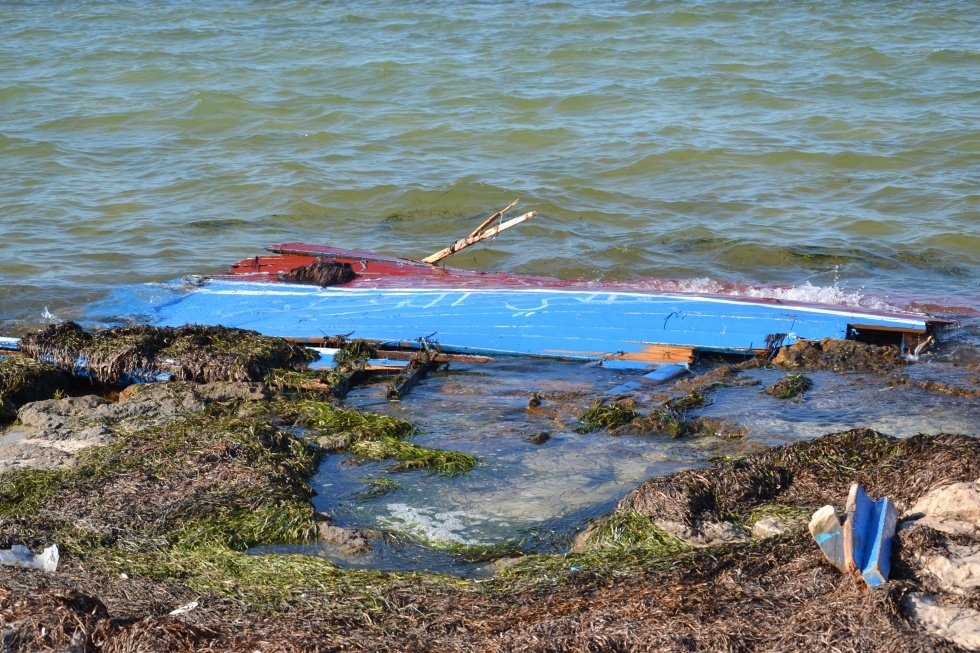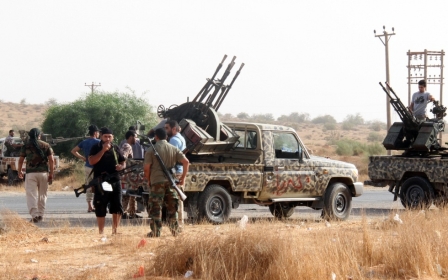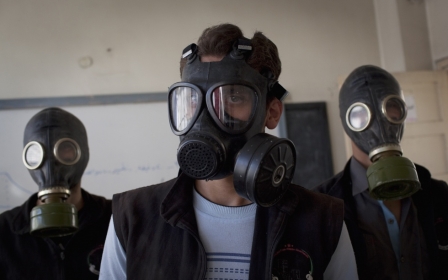At least 10 migrants drown off Libyan shore

At least 10 migrants from sub-Saharan Africa drowned Thursday and dozens more were missing after their boat sank in the Mediterranean off the coast of Libya, the coast guard have said.
Between 80 and 90 people were rescued after the boat went down in waters east of Tripoli, a coast guard officer said, adding that survivors said there had been up to 180 people on board.
Among those saved were two women, according to the officer, who said the boat capsized three nautical miles off Guarabouli, which is 60 kilometres (36 miles) from the capital.
Thursday's tragedy was the second this week involving Africans trying to make their way to a new life in Europe and comes a year after 360 people perished in a sinking, burning ship off the Italian island of Lampedusa.
On Wednesday, Spanish coast guards pulled the bodies of two Africans from the sea off the coast of Morocco and six others were missing after a dinghy carrying them sank.
For years, Libya has been a major embarkation point for hundreds of thousands of refugees, mostly Africans, heading to Europe.
They risk their lives on often unseaworthy craft trying to make it to Malta or to Lampedusa, south of Sicily, and hundreds of lives are lost each year.
By far the worst tragedy took place last month when about 500 people drowned off the Malta coast after traffickers rammed and sank their boat when the passengers refuesd to transfer to a smaller vessel.
The implosion of Libya, the civil war in Syria and renewed Israeli-Palestinian hostilities have helped push the flow of would-be refugees seeking sanctuary in Europe to unprecedented levels.
More than 3,000 migrants have died trying to cross the Mediterranean so far this year, more than double the previous peak in 2011, the International Organisation for Migration said on Monday.
Writing in the Guardian, a research fellow in the Centre for Applied Human Rights at the University of York, condemned the European Union's obsession with securing its borders at the expense of refugees attempting to reach the continent:
"While the EU and its member states devote huge resources to the maintenance of their sea borders, they find none to address the humanitarian impact of unidentified migrant bodies," he wrote.
"Data to count the number of dead have never been systematically collected by states – hence the attention paid to the IOM report – demonstrating that dead migrants are of far less interest than live ones."
He pointed out that "EU states have the capacity to create a system in which migrant bodies are dignified, with an appropriate burial, and data is collected to maximise the possibility of identifying the dead and ensuring that their families are informed."
"Isn’t ensuring human dignity one of the ideals of the EU? Perhaps giving value to migrants in death is a route to valuing their lives, so that the Mediterranean’s death toll would be reduced."
Middle East Eye propose une couverture et une analyse indépendantes et incomparables du Moyen-Orient, de l’Afrique du Nord et d’autres régions du monde. Pour en savoir plus sur la reprise de ce contenu et les frais qui s’appliquent, veuillez remplir ce formulaire [en anglais]. Pour en savoir plus sur MEE, cliquez ici [en anglais].



